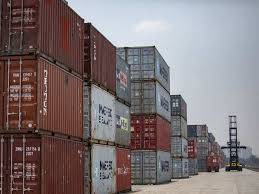Focus on exemptions, inverted duty structures
India is likely to revamp its customs duty regime, weeding out some exemptions and correcting inverted duty structures to give a boost to the government’s Make in India manufacturing initiative as well as exports. It is also considering easing of procedures for industry such as anonymous assessments and speedier clearances, while taking steps to curb evasion. Some of these measures could be announced in the budget for FY20 on July 5 as India looks to take advantage of companies wanting to diversify their global production and set up base in the country. “There will be a review in respect of encouraging domestic manufacturing,” said a government official. Policymakers are of the view that some exemptions on commodities and other items should be weeded out. Sectors such as telecom, metals, batteries and chemicals for electric vehicles could see changes. The government had earlier imposed and enhanced duties on smartphones and telecom equipment. It is now expected to undertake a comprehensive review that could lead to reduction of duties on some critical inputs used in the manufacture of phones while raising it on finished products to further encourage domestic manufacture of handsets.
Vietnam has been able to woo a number of telecom companies from China and policymakers feel that now may be the right time to offer a conducive tax regime to such investors to set up shop in the country. While a number of companies have established assembly lines, the government wants the entire manufacturing chain to be located in India. Experts say any increase in duties would negate the impact of free trade agreements that levy zero duty on many products. “Realigning exemptions to encourage Make in India is a step in right direction,” said Rahul Shukla, executive director, PwC. “However, imports under FTAs (free trade agreements) continue to have an impact on domestic industry.” Trade Facilitation Tops Agenda The government is also eyeing simplification of procedures for exporters and importers. The move to anonymous assessment is aimed at greater efficiency and transparency in functioning. Ease of doing business weighs high on the government’s agenda. The country jumped 23 points in the World Bank’s last ease of doing business ranking to 77 and a push is on to enter the top 50.
Single-window clearance has already been put in place for traders. Measures to boost exports, including tax refunds, are also on the anvil. While enhancing facilitation, the government is also looking at tightening some provisions to check tax evasion. “Proposed faceless assessment in customs, hopefully, will increase the processing efficiencies and remove the physical interface and associated hassles,” said Shukla. An inverted structure is one in which the import duty on finished goods is lower than that on the materials or parts that go into making such a product, thus acting as a disincentive for local manufacture.

